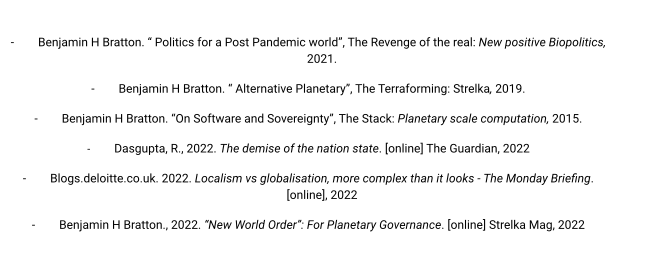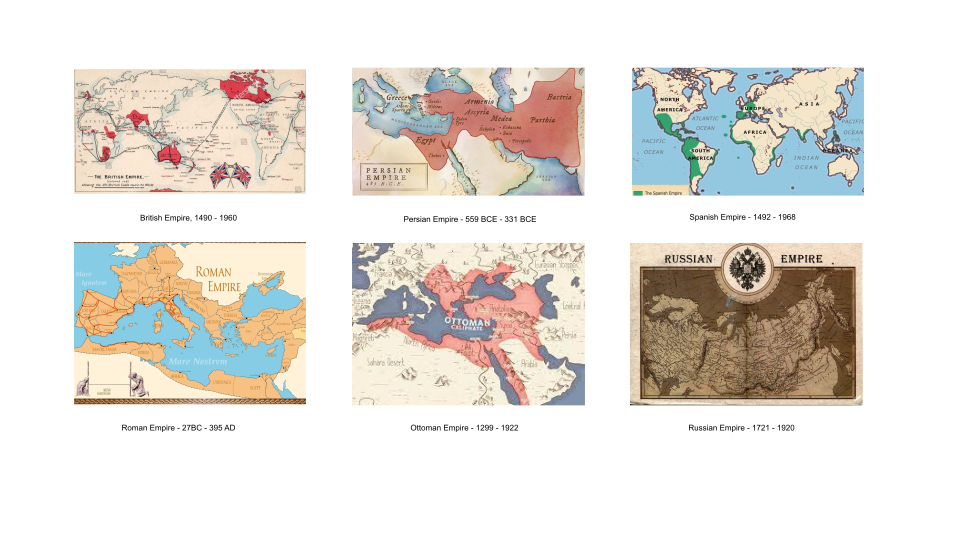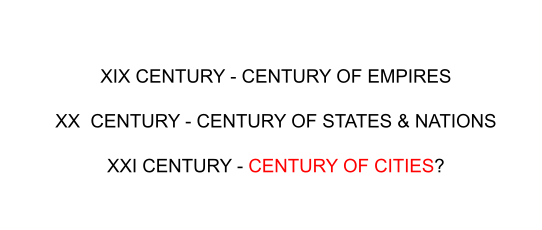Sovereignty in a Multi-Dimensional Geopolitical scenario
Kashmir – A Geopolitical Hotspot
Relevance
A new model of Nation-State
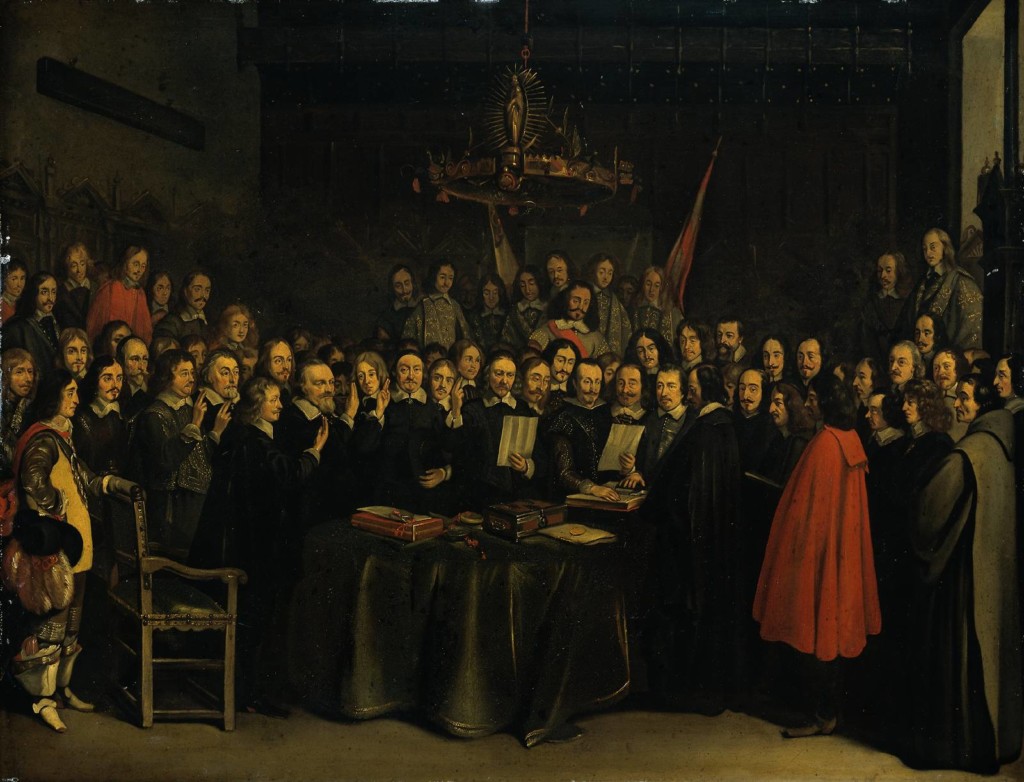
The Congress of Munster concludes the Treaty of Westphalia, 1648
Signed in 1648 by nearly all the European powers, with the exception of England and Russia, the peace treaty of Westphalia, ended a 30-year war and an 80-year war between protestants and Catholics. In addition to reshaping the territory of Europe, they laid the groundwork for the international system organised on the basis of sovereignty, each political entity is recognised as being sovereign within its borders. This political model gave rise to the concept of the modern state. It relies on the national army for border security.
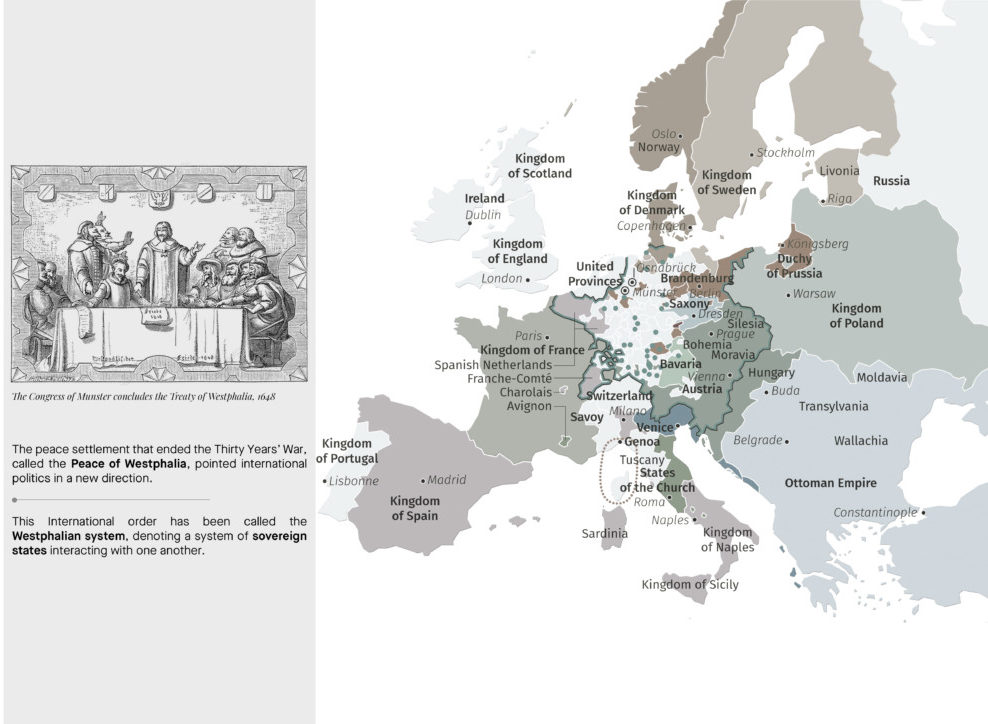
PEACE OF WESTPHALIA 1648; Concept of Modern State Sovereign states interacting
The peace settlement that ended the Thirty Years’ War, called the Peace of Westphalia, pointed international politics in a new direction. This international order has been called the Westphalian system, denoting a system of sovereign states interacting with one another.
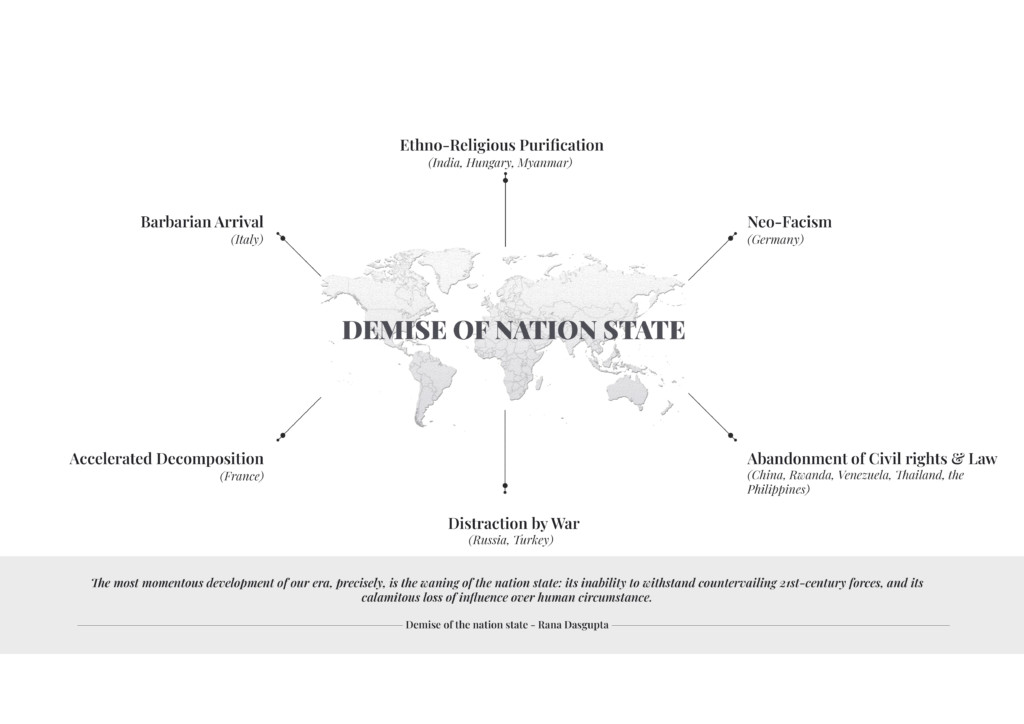 When we discuss “politics”, we refer to what goes on inside sovereign states; everything else is “foreign affairs” or “international relations” – even in this era of global financial and technological integration.
When we discuss “politics”, we refer to what goes on inside sovereign states; everything else is “foreign affairs” or “international relations” – even in this era of global financial and technological integration.
The convulsions in national politics are not confined to the west. Exhaustion, hopelessness, and the dwindling effectiveness of old ways are the themes of politics all across the world. This is why energetic authoritarian “solutions” are currently so popular, for example, distraction by war; ethnoreligious “purification”; the magnification of presidential powers and the corresponding abandonment of civil rights and the rule of law.
Nation-states everywhere are in an advanced state of political and moral decay from which they cannot individually extricate themselves.
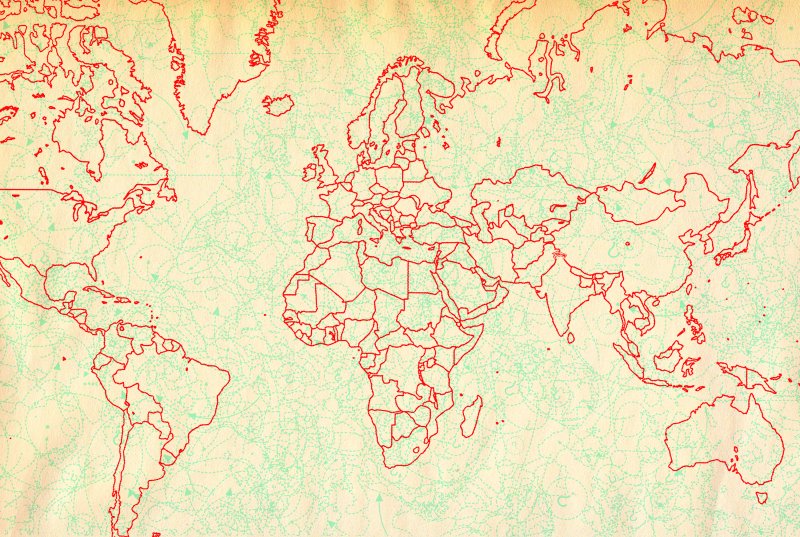
Multi-Dimensional Geopolitical Scenario
The current process of globalisation has been challenging the legitimacy of the “Westphalian” nation-state. The intensification of different transnational flows, increasing global interconnectedness combined with the rapid development of information and communication technologies, and the internationalisation of economic systems have all considerably influenced international relations.
However, the geopolitical map of the world is still shaped by factors of demography, geography, history, and cultural and national identity, among other elements. Likewise, competition for control of strategic zones and natural resources has not lost its significance.
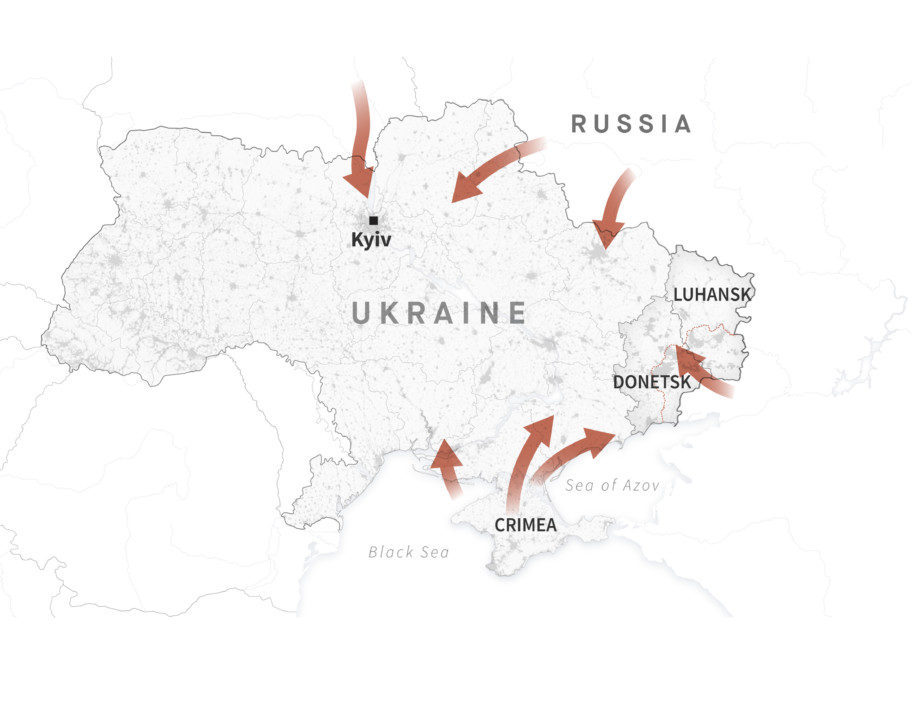
The Russian – Ukraine Conflict
The era of national self-determination has turned out to be an era of international lawlessness, which has crippled the legitimacy of the nation-state system. And, while revolutionary groups attempt to destroy the system “from below”, assertive regional powers are destroying it “from above” – by infringing national borders in their own backyards. Russia’s escapade in Ukraine demonstrates that there are now few consequences to neo-imperial bagatelles
This abdication is built on the attempted assumption of sovereign power that sees the planet as a world subordinated to the insular mythos of distinct organic communities. The fact that, through the “big filtering,” the sovereigns could capture their far-flung citizens and subject them to this sophistic bombast ensured that even those who know better could not escape their ineptitude. In this regard, their ability to wield negative biopolitics rests upon claims of such sovereignty.
– Benjamin Bratton; Page 30 – The revenge of the real, politics for a post-pandemic world
Research Question
The fragility and vulnerability of the liberal international order have become globally visible. Which models of Sovereignty does this Multi-Dimensional Geopolitical Scenario deploy?
Historical Precedents
Political Changes
Let us consider how the concept of authority had been understood before this point in Europe and the world. Much of earlier history is in contrast to our current model of divided sovereignties and divided authority. Instead, the ideal that had a great appeal at the start of the modern age was that of universal authority, often expressed as an empire. For much of human history, empires have been more common forms of political organization than a nation-state or a republic.
The 19th century was still a century of Empires, With the Russian Empire, the Ottoman Empire, etc. The 20th century was finally a century of States and Nations. The 21st century was supposed to be a century of Cities.
But what we see is that we are still a century of Nation States, but intertwined with unprecedented ecological, cultural and technological forces on one side, and extreme forms of folkloric localisms on the other.
Approach
The disappearance of Nation-State
The national state is disappearing and is being replaced. what we are saying is that this is not being erased, it is still operative but co-exists with other forces, but it is still not gone as it might seem for many people. it needs to co-exist with other forces that are planetary. other forces of localism and globalism.
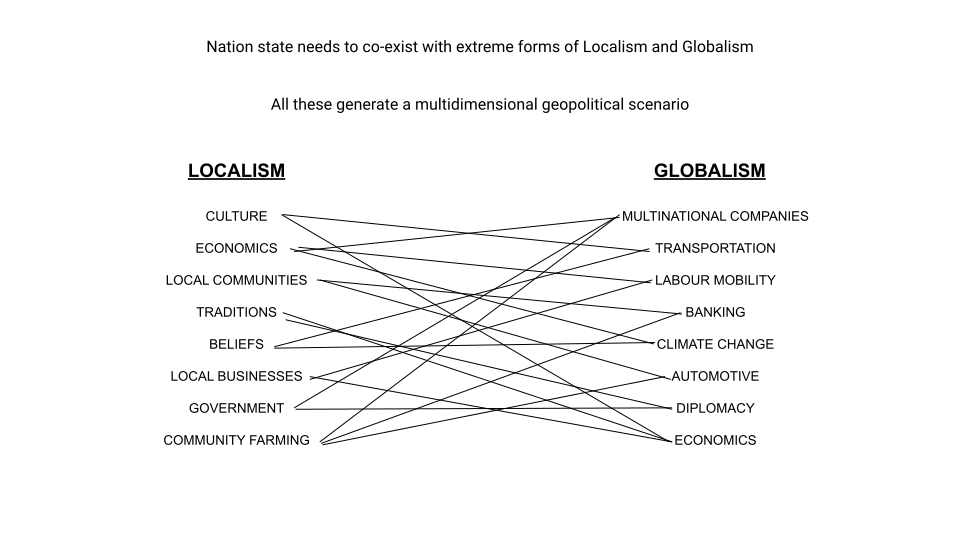
We see various factors of Localism and Globalism intertwined and overlapped to generate a multidimensional geopolitical Scenario.
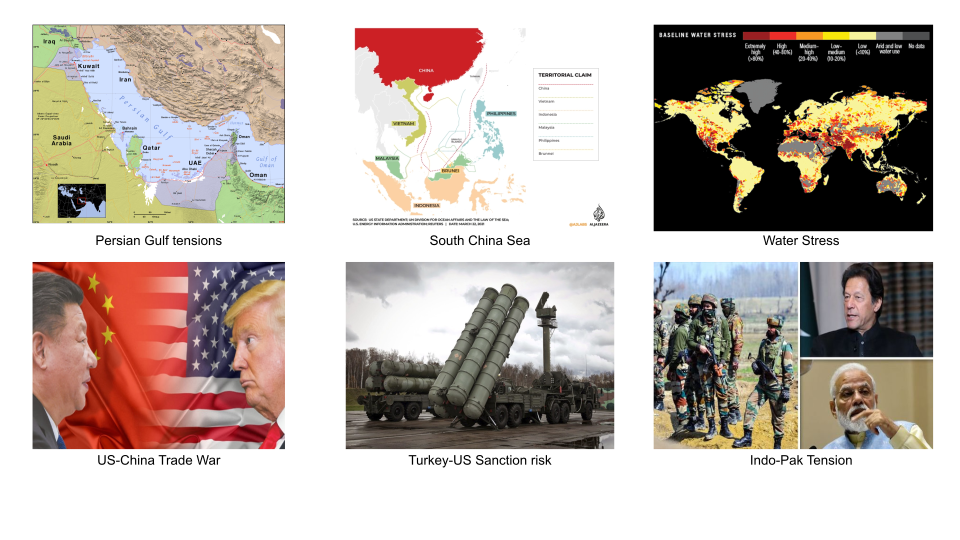 There are some hotspots where these forces are still operative.
There are some hotspots where these forces are still operative.
This Geopolitical situation can no longer be purified, and cannot be reduced or simplified to one of these forces.
It can no longer be explained by Nation state and can neither be explained by the private corporations.
It is an overlapping of all the situations and cannot be isolated.
It is no longer ONE model of Sovereignty.
Nation state is overlapped with planetary forces and with extremely local forces

COVID-19 exposed the pre-existing conditions of the current global crisis. Many Western states failed to protect their populations, while others were able to suppress the virus only with sweeping social restrictions. In contrast, many Asian countries were able to make much more precise interventions. Everywhere, lockdown transformed everyday life, introducing an epidemiological view of society based on sensing, modelling, and filtering. What lessons are to be learned?
Hypothesis
One of the most prevalent models of sovereignty today is a planetary form of bio governmentality

New positive biopolitics that recognizes that governance is literally a matter of life and death. We are grappling with multiple interconnected dilemmas—climate change, pandemics, the tensions between the individual and society—all of which have to be addressed on a planetary scale. Even when separated, we are still enmeshed. Can the world govern itself differently? What models and philosophies are needed? Instead of thinking of biotechnologies as something imposed on society, we must see them as essential to a politics of infrastructure, knowledge, and direct intervention. In this way, we can build a society based on the new rationality of inclusion, care, and prevention.
State of the Art
Benjamin Bratton
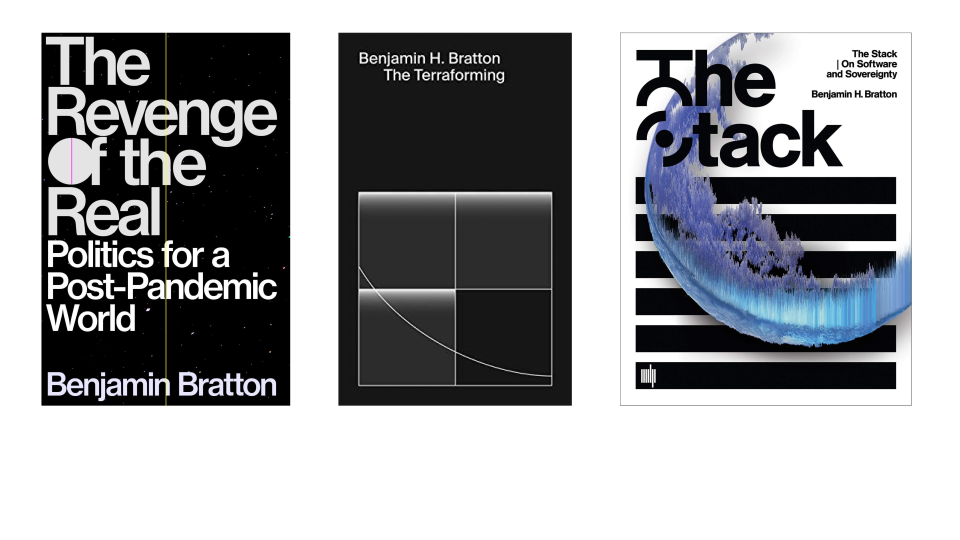
In the state of the art, we study and understand the works of Benjamin Bratton
Case Study
Kashmir – A Geopolitical Hotspot
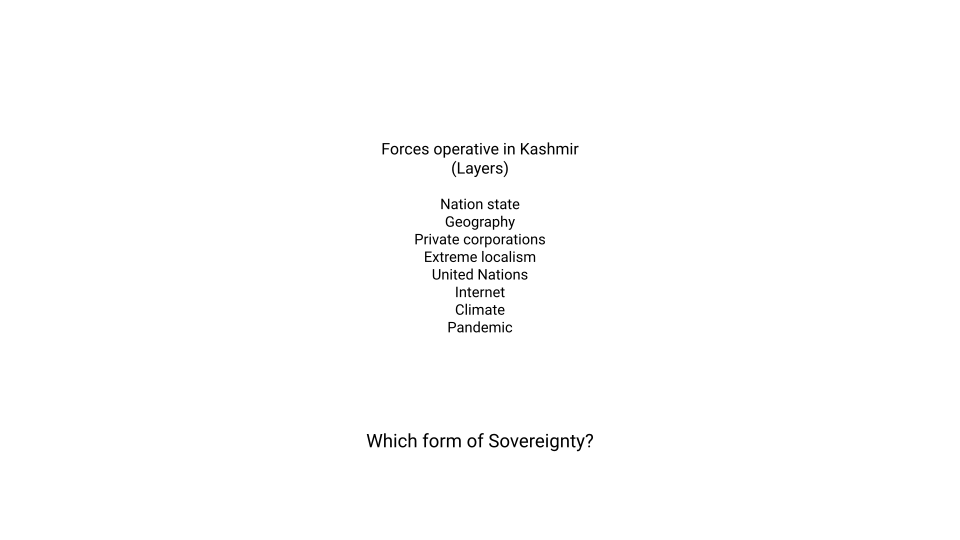
We look at the multiple forces acting on Kashmir, be it Nation-state, Geography, Private corporations, Extreme Localism, United Nations, Internet, Climate, & the Pandemic.
Which forms of Sovereignty does it show?
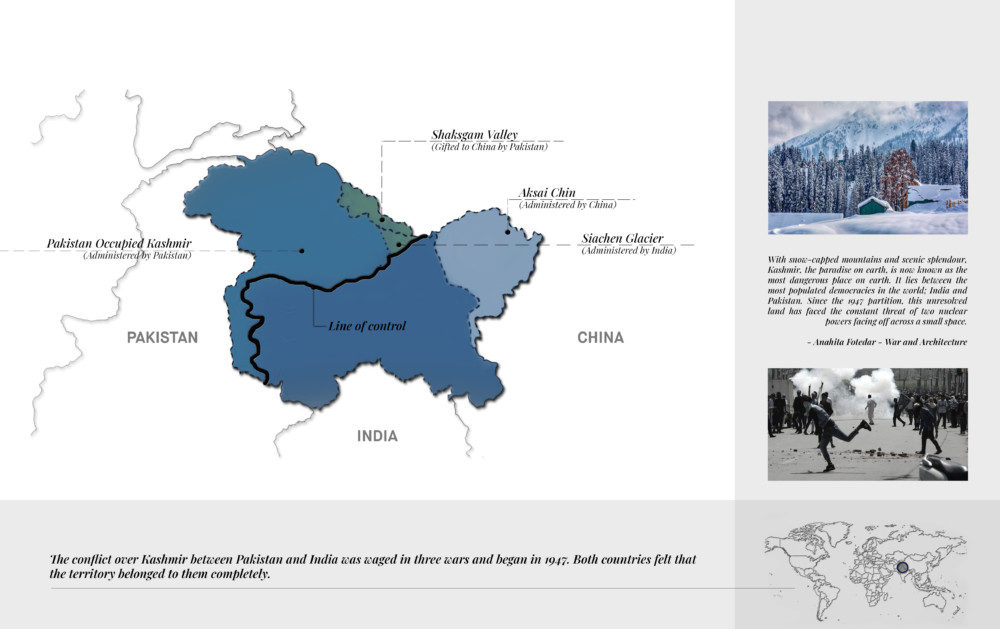
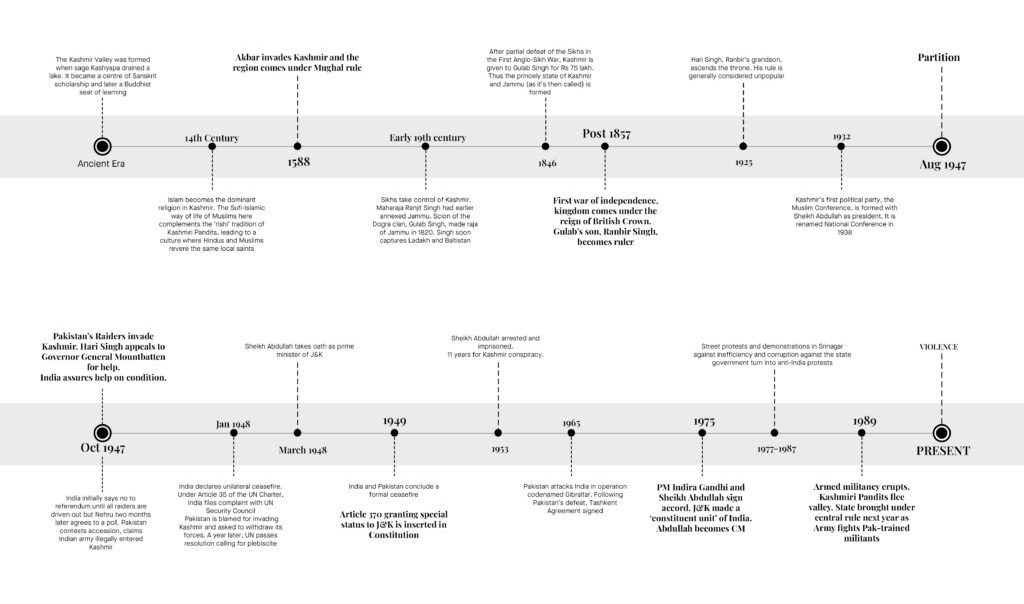
The historical pattern shows years of unrest in the state of Kashmir. The region went under the Mughal rule, followed by the Anglo-Sikh war and later to be taken over by the British Crown. In the 1947 Partition, The Indian Army entered Kashmir and a special status in the name of Article 370 was inserted into the constitution. Pakistan attacks India, resulting in Anti-India Protests. The Kashmiri Pandits had to flee from their homes and Currently, Violence is at its peak.

Geographical Importance
The primary land link between Pakistan and China, the Silk Route, passes through Kashmir which is very significant because China has border disputes with India and is also a major diplomatic and military ally for Pakistan.
The Siachen Glacier is the only barrier preventing Pakistani and Chinese forces from linking up in Kashmir.
The strategic importance of Kashmir extends beyond South Asia and onto the global stage. an independent Kashmir that is neutral between India and Pakistan would be dependent on the west due to its landlocked nature. This would give the west an opportunity to establish a military presence in the valley and consequently enable it to extend its influence beyond the Middle East to Central Asia and the western border of China.
Besides its strategic and political significance, Pakistan and India both claim Kashmir because of cultural and social reasons.
Water is also an important aspect of India and Pakistan’s fight over Kashmir. Pakistan also relies heavily on these glacial waters flowing from the region to support its agricultural sector.
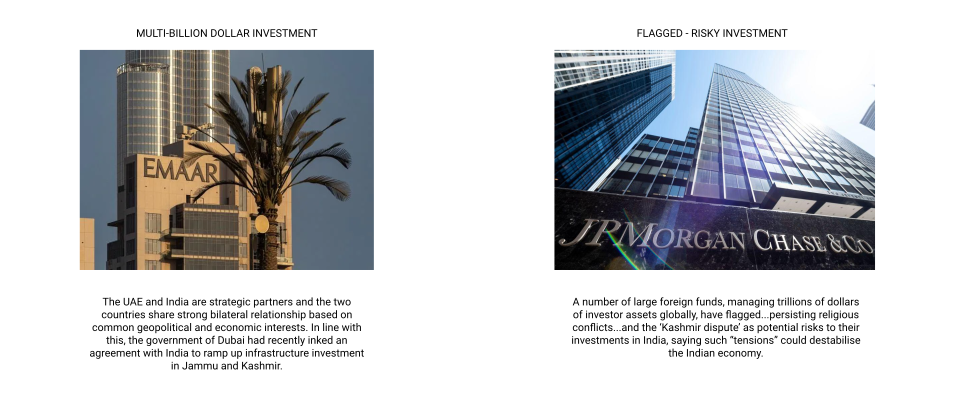
International Forces
While several companies are making a multi-billion dollar investment in Kashmir, Others are flagging the region as a risky investment due to the instability of the Indian Economy.
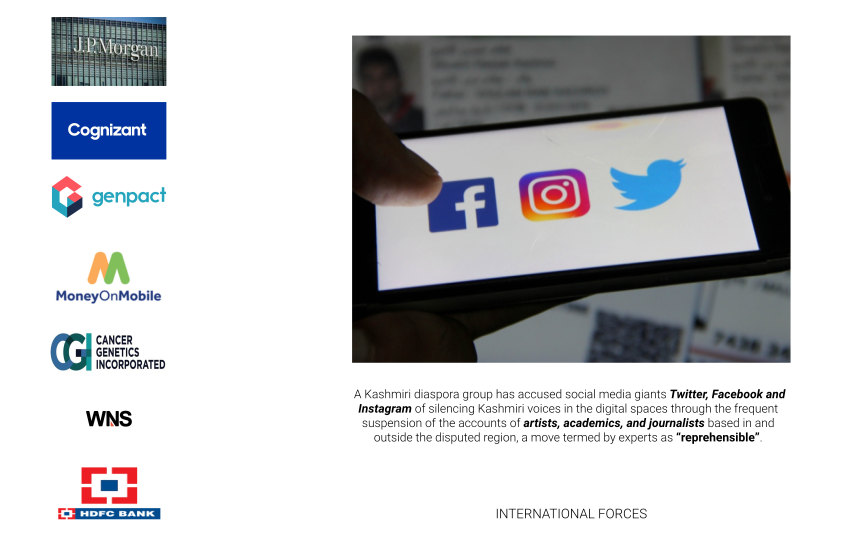
While there are many international corporations involved in Kashmir, some social media giants like Twitter and Facebook are silencing Kashmiri voices through frequent suspension of accounts of artists, academics and journalists. A reprehensible move.
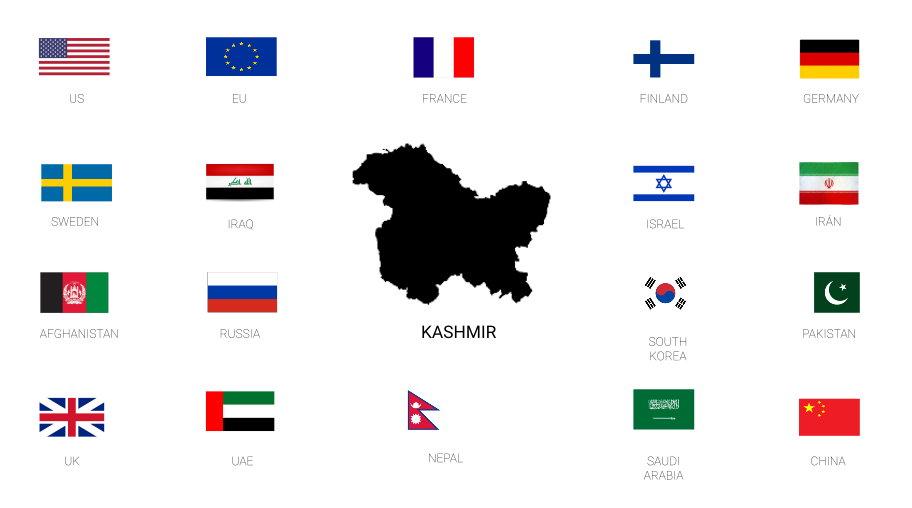
What the world has said about Kashmir
US and Sweden are interested in the lifting of restrictions and release of the detained people. They support a bilateral political solution.
The EU calls on India and Pakistan to find a peaceful solution, saying the world cannot afford another escalation in Kashmir.
Finland and Germany say the situation in Kashmir is unsustainable and called for diplomats to assess the situation
The UK also wants to see India deliver on its pledges for the human and economic development of Kashmir.
The UAE says this is an internal matter as stipulated by the Indian Constitution, and expressed the hope that the changes would improve social justice and security and encourage further stability and peace.
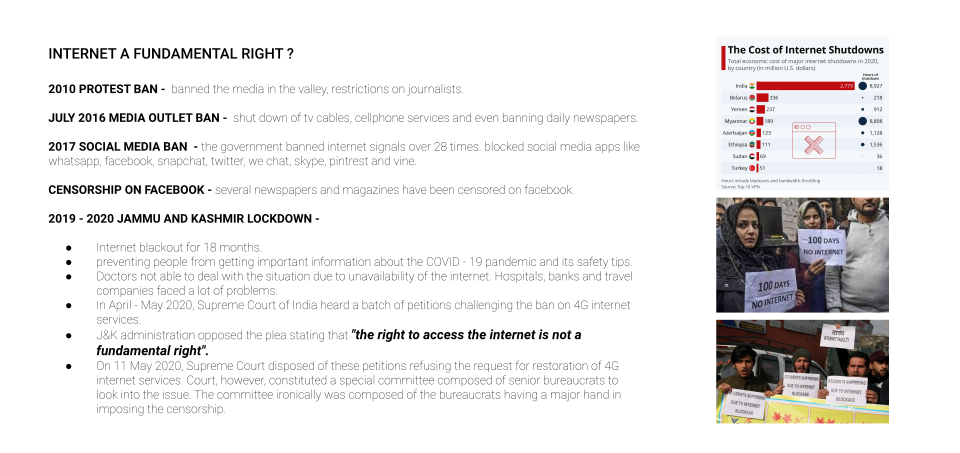
Censorship in Kashmir
Protest bans, Media outlet bans, Social media bans and censorships have questioned the fundamental right of the people of Kashmir. The internet blackout for 18 months has prevented people from getting important information during the Covid-19 breakout.
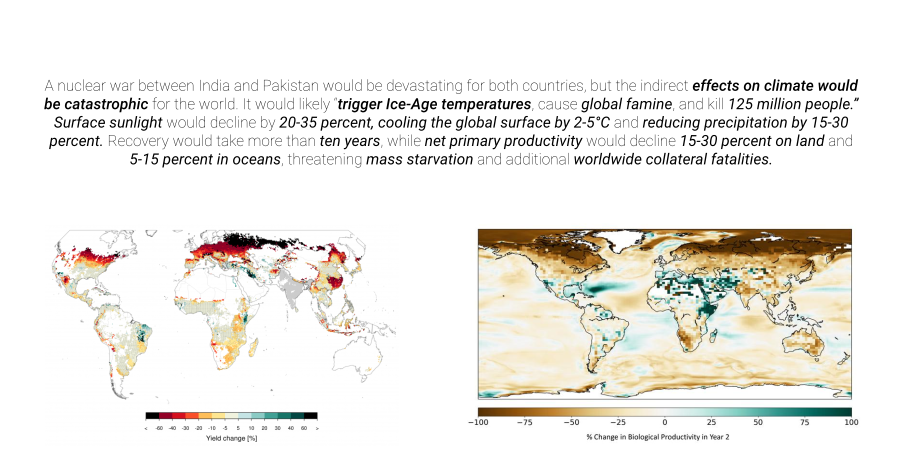
Post Nuclear war predictions
An Indo-Pak Nuclear war would be devastating with catastrophic effects on the climate that could trigger Ice-Age temperatures. It could cause a global famine and kill nearly 125 million people. The situation could cause mass starvation and worldwide collateral fatalities.
Perspectives
A new model of Sovereignty
Both the planetary forces and the extreme localism might be exclusive, in the sense of not being inclusive.
Some forces like ecological might be read as inclusive, but extreme localism might be read as exclusive. It might seem that planetary forces are inclusive, but they often end up provoking inequalities and exclusivity, like climatic refugees.

As Benjamin Bratton quotes – It is a call for a bio-governmentality for the remediation and rectification of a wounded species and its wounded habitat.
Bibliography
